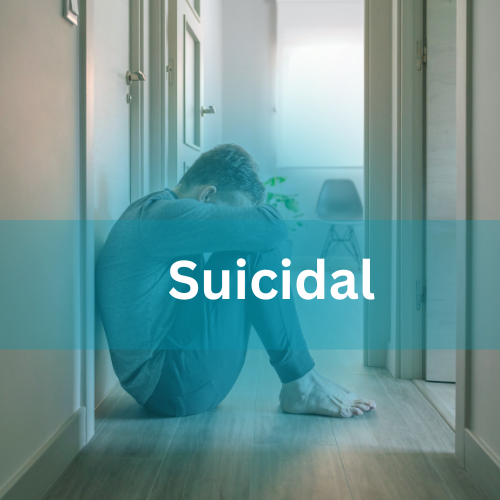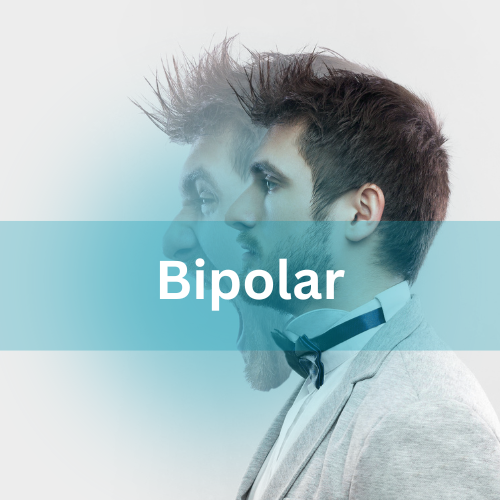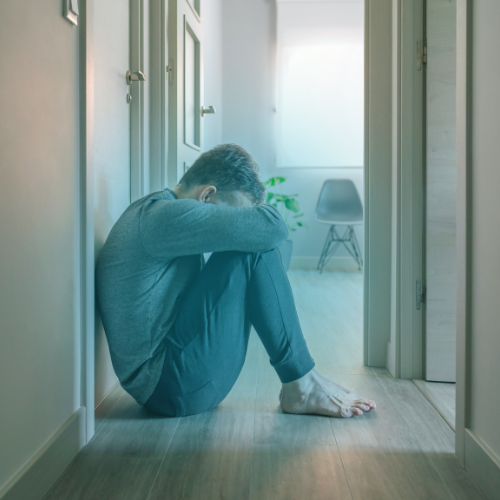
Suicidality
In 2017, Connecticut officials reported that suicide was the second leading cause of death for people between the ages of 10-34. In many cases, patients who think about or commit suicide struggle with mental health disorders that didn’t improve with standard psychiatric treatment. Gino Ang, MD, and the team at Ketamine Center of Connecticut offer relief from suicidality with ketamine infusions that rapidly produce results for many patients. To get help with suicidal thoughts, schedule an appointment today by calling our office in Milford or Westport, Connecticut.
What many patients experience as symptoms begin to lift
Many feel a noticeable reduction in acute ideation within hours.
Pain and despair become less consuming.
The intensity of panic and emotional pain drops.
Patients report feeling more grounded and able to plan.
Reduced emotional overload allows better decision-making.
Rapid relief creates an opportunity for therapy and safety planning to work.

Your struggles are real. So are the solutions we provide.
What can we help you with?
Overcome Depression
Most patients with depression count on medications like antidepressants to improve their mood, yet antidepressants fail to…
Conquer Anxiety
Nearly one-third of adolescents and adults have an anxiety disorder, yet only half of them improve with standard…
Heal from PTSD
Post-traumatic stress disorder (PTSD) has a devastating impact on people of all ages, including about 8% of adults and…
Break Free from OCD
Obsessive-compulsive disorder (OCD) causes unwanted but uncontrollable thoughts and behaviors that disrupt your…
Heal from Bipolar
Bipolar disorder often begins with an episode of major depression before you cycle to mania. In many patients, bipolar depression…
Overcome Suicidality
In 2017, Connecticut officials reported that suicide was the second leading cause of death for people between the ages of…
Learn more about what to expect on your journey.
Frequently Asked Questions
- Talk about wanting to die or kill themselves
- Say they have no reason to live
- Look for a way to commit suicide
- Stockpile pills or buy a gun
- Talk about being a burden to others
- Talk about how you’d be better off without them
- Use alcohol or drugs more frequently
- Show anger or talk about getting revenge
- Take risks that could lead to death, like driving too fast
Reach Out for Support
Fill out the form below and our care team will contact you promptly. All inquiries are confidential.
Your struggles are real. So are the solutions we provide.
What can we help you with?
Overcome Depression
Most patients with depression count on medications like antidepressants to improve their mood, yet antidepressants fail to…
Conquer Anxiety
Nearly one-third of adolescents and adults have an anxiety disorder, yet only half of them improve with standard…
Heal from PTSD
Post-traumatic stress disorder (PTSD) has a devastating impact on people of all ages, including about 8% of adults and…
Break Free from OCD
Obsessive-compulsive disorder (OCD) causes unwanted but uncontrollable thoughts and behaviors that disrupt your…
Heal from Bipolar
Bipolar disorder often begins with an episode of major depression before you cycle to mania. In many patients, bipolar depression…
Overcome Suicidality
In 2017, Connecticut officials reported that suicide was the second leading cause of death for people between the ages of…






